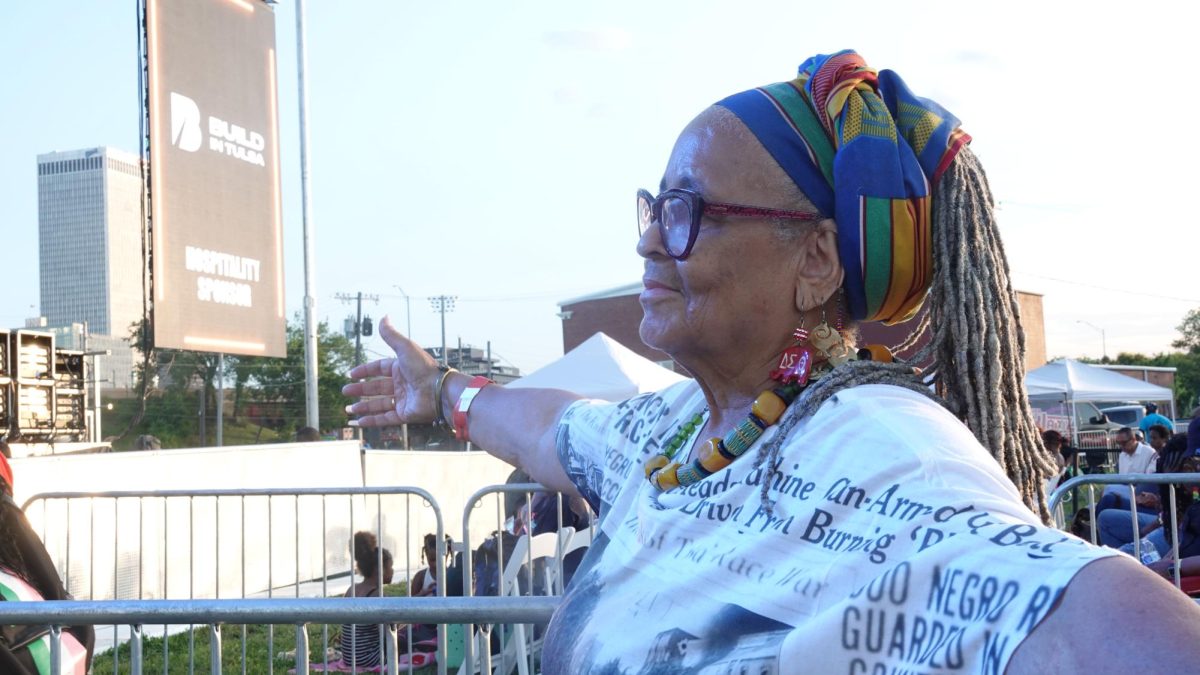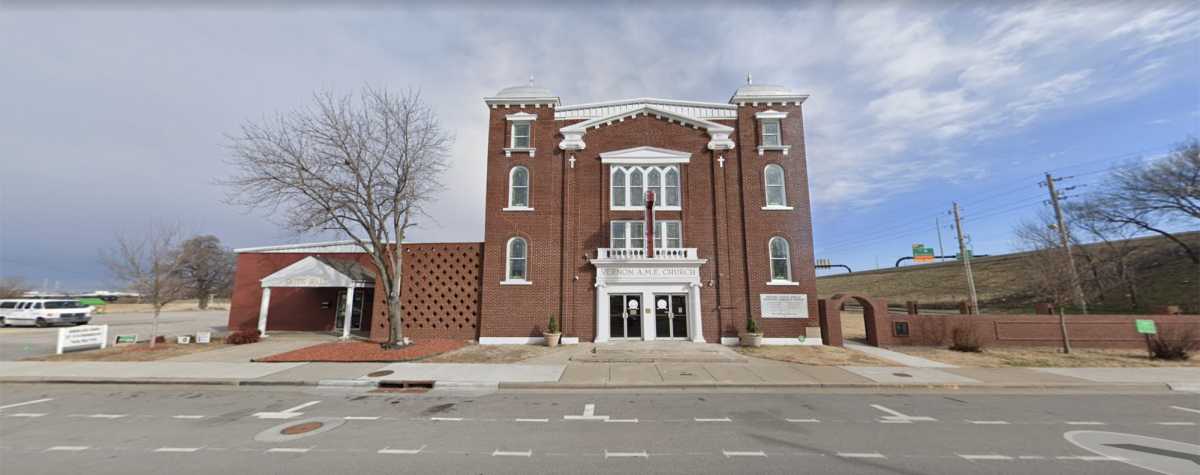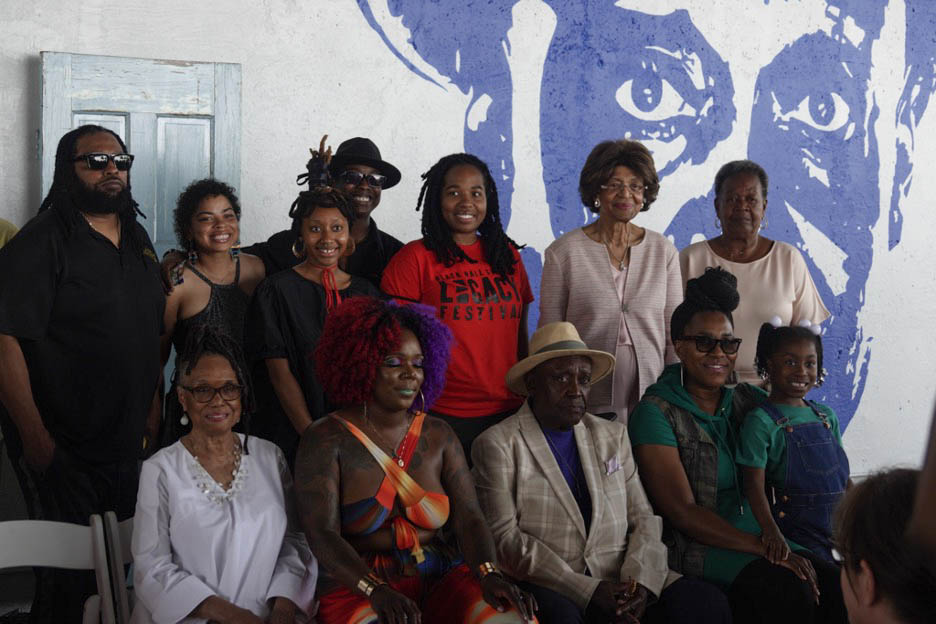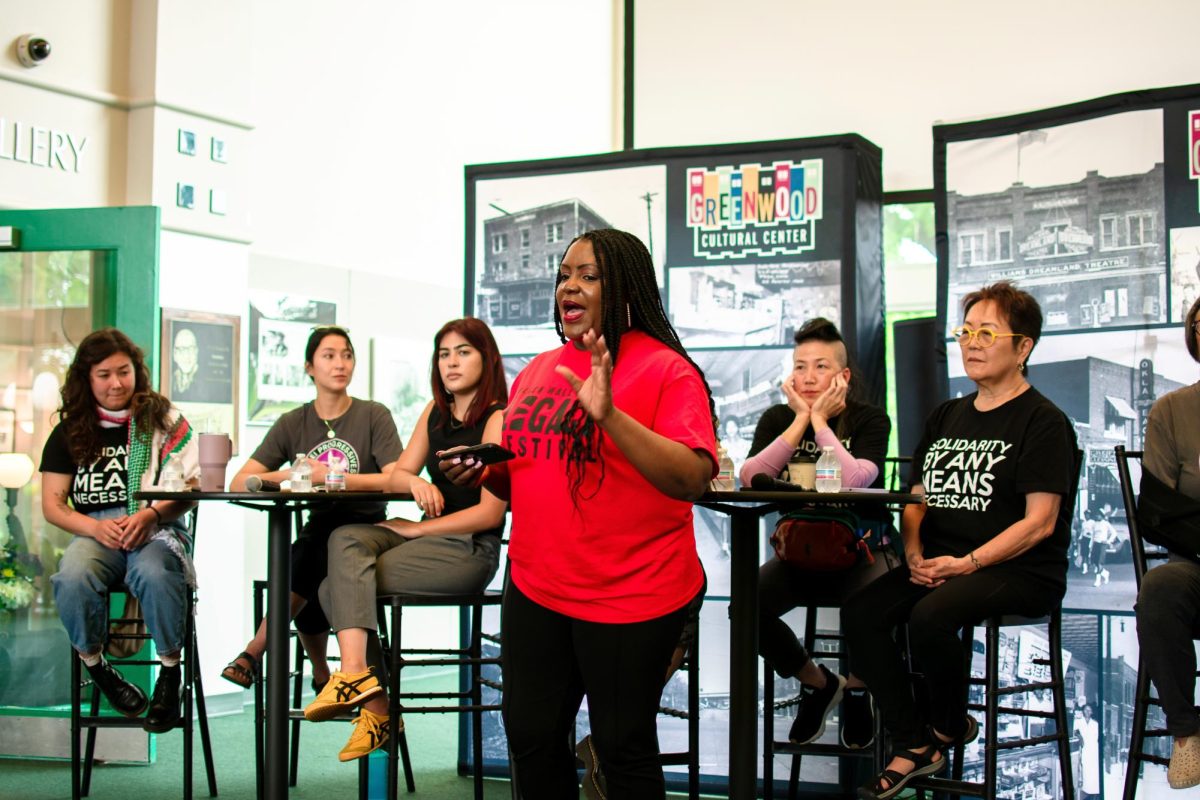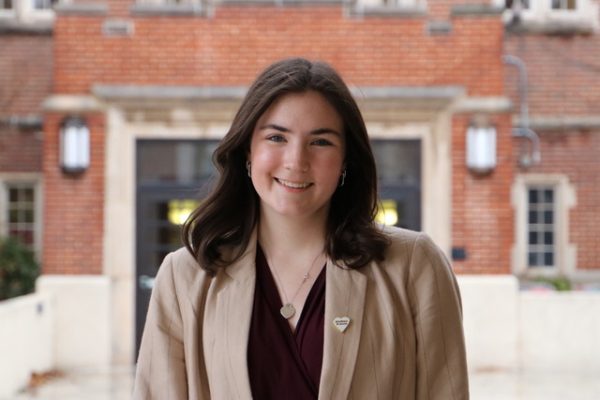TULSA, OKLAHOMA AND MINNEAPOLIS
Although they are both still grappling with acts of racial violence, there is a spirit of remembrance rooted in hope in the Greenwood District of Tulsa and the neighborhood around George Floyd Square in Minneapolis.
Often expressions of remembrance come in the most personal of material – the t-shirts people wear. That is the case for long-time Greenwood resident Joyce Smith-Williams who wears a t-shirt nearly every day with some kind of statement about the African experience in the United States.
“There’s so much that is going on that often people are not willing to open a book and find that information. I think these tee shirts spark people to go and find what they symbolize,” Smith Williams said.
In her years as a Greenwood resident, Smith-Williams worked as a social worker specializing in community intervention. Oftentimes she worked with the survivors of the massacre who are now the ancestors that many descendents vow to never forget.
“Remembrance is important because we are under the illusion that this is just a few bad people, but instead it’s actually an insidious system,” Smith Williams said.
Jensen Moore, associate professor at Gaylord College whose research investigates expressions of grief on social media, considers acts like the t-shirts Smith-Williams wears, as an act of resilience.
“For Greenwood [residents], the wearing of stuff is really them symbolizing [that] ‘We have this past, we’re not going to run from it any longer, we’re not going to allow you to sweep it under the rug, we’re not going to allow you to whitewash it.”
Murals, posters and stickers in remembrance of black men killed during police interactions blanket the George Floyd Square in South Minneapolis. Among the men memorialized in these works is Kobe Heisler, who was 21 years old when he was killed by police while facing a mental health crisis.
“He was just having a bad day that day,” said Jason Heisler, Kobe’s father.
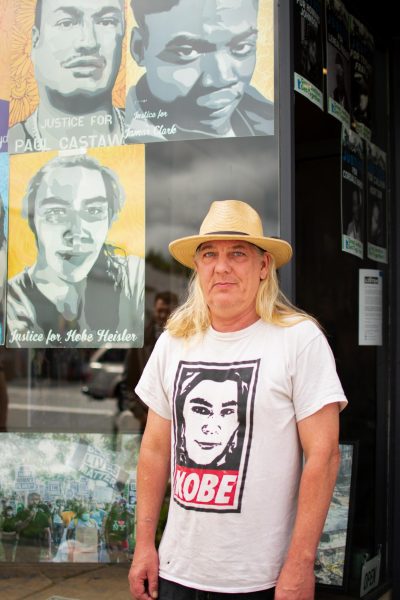
Kobe Heisler was a talented chef, horticulturist, artist who loved bicycles and was extremely intelligent. He was also autistic, gay, and of mixed race. Jason Heisler said his son was much more than the labels others attached to him in life.
“He was an inspiration to a lot of autistic kids and everyone loved him,” Jason Heisler said while wearing a t-shirt honoring his son. “He’s remembered for being kind hearted and kind of a secret genius.”
The shirt Jason Heisler wears was made in the week following Kobe’s death. In that time, several were made and distributed to the organizations and people Kobe had a deep connection to. Many among this group, including Jason Heisler, wore the shirt to Kobe’s funeral.
Although the Minneapolis Police Department has adopted new de-escalation policies because of Kobe’s death, his father remains skeptical.
“A lot of times for their [police officers] safety and for the safety of everyone around them, they’re better off going back to where they came from,” said Heisler.
“Understand that that mourning and those triggers are going to continue to be part of the makeup of how people process grief,” said Moore. “Because that’s part of the history of what happened to their family, people in their culture, how people were treated here in the US and how people were treated here in Oklahoma.”
In both the Greenwood District and the neighborhood around George Floyd Square, memorializing people and events are a means of advocating, remembering and celebrating the strength to endure.
“The fact of the matter is you cannot speak only to the trauma, you have to speak to the strength,” Smith Williams said.
Gaylord News is a reporting project of the University of Oklahoma Gaylord College of Journalism and Mass Communication. For more stories by Gaylord News go to GaylordNews.net.
Return to the Voices of Resilience homepage.

